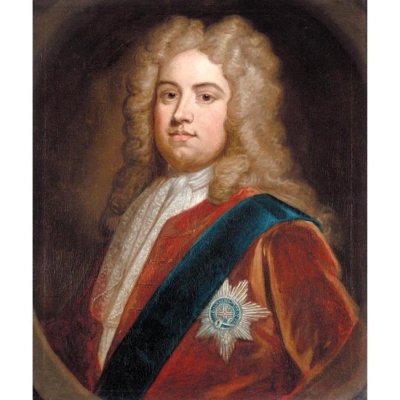
Gisteren verscheen mijn artikel "‘So Great a Revolution’: Charles Townshend and the Partition of the Austrian Netherlands, September 1725" in het tijdschrift Dutch Crossing: Journal of Low Countries Studies. De tekst gaat over een tot dusver weinig bekend splitsingsplan voor België. Oostende en Brugge komen in Engelse, Antwerpen in Nederlandse handen. Gent wordt een onafhankelijke vrijstaat, waar beide vreemde machten wel een stevige vinger in de pap houden.
Het plan vond (helaas ?) weinig gehoor bij Horatio Walpole, ambassadeur in Parijs (onder andere omdat -in zijn ogen- de plaatselijke "kwezelige" bevolking al te zeer onder de invloed van de Rooms-Katholieke Kerk stond). Ik leg uit waarom het falen van deze poging eigenlijk niet zo belangrijk is, als je kijkt naar de bredere context. De redenen voor de afkeuring, en de manier waarop het voorstel geformuleerd zijn, zeggen ons meer over wat in 1725 echt telt voor het management van het Europese statensysteem (onder andere -hoe kan het ook anders- het juridisch kader). In de fantasie van de stormachtige Engelse minister van Buitenlandse Zaken zien we wat aanvaardbaar is, en wat niet...
Abstract (Engels):
This article examines an exchange of dispatches between two prominent eighteenth-century British foreign policy makers, Charles Townshend (1674–1738) and Horace Walpole (1678–1757), wherein the former proposed a par- tition of the Southern Netherlands. In the immediate aftermath of the 1725 Ripperda treaty, whereby Austrian Habsburgs and Spanish Bourbons surprisingly came together in a potential new universal monarchy, Townshend saw opportunities to diminish Emperor Charles VI through conquest of his positions in the Low Countries. Habsburg, and not France, is seen as the main menace to European stability. Although the plan was never put into practice and consequently but scantly discussed in historiography, the arguments put forward by both men reveal crucial long-term thinking patterns. Townshend adapted his aggressive plans to the prevailing ideational dominance of balance-of-power-thinking after the 1713 Peace of Utrecht.
De tekst kan hier worden gedownload.
Geen opmerkingen:
Een reactie posten